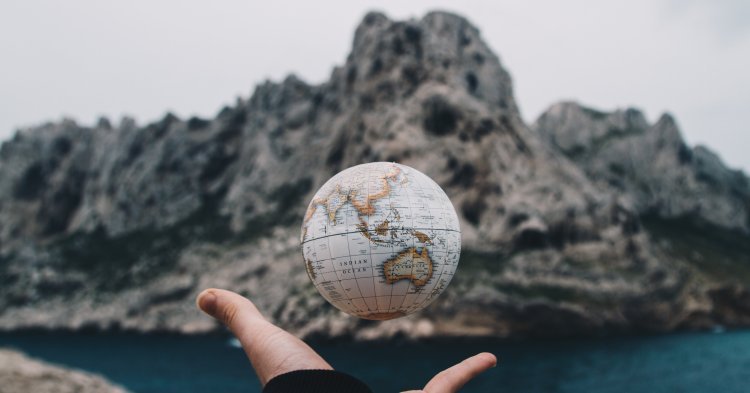Especially in Europe, multinationalism is becoming a common characteristic of many young adults and children today. Immigration increases, meaning that people from around the world submerge themselves into a melting pot, resulting in children becoming confused about their identity when they were raised outside of their home country or if their mother and father have different nationalities.
I’m a bit confused too, we all are. However, for those of us that can relate to this, it’s important for us to acknowledge that this is an advantage rather than a setback, and definitely something to be proud of.
I learned this as I grew older, being born into a family where my mother hailed from Colombia and my father was Danish, while also growing up in Washington D.C. Living in a house speaking more than one language can be a somewhat challenging yet enlightening experience.
The substantial problem I faced in a multinational family was never feeling like I fully belonged to any nationality. In Denmark, I looked like every Dane who walked the streets when I spent my summers in Silkeborg, however I did not feel Danish. In Colombia, I did not feel like I truly belonged either, regardless of being able to speak the language and attending high school in Bogotá.
I thought that in the end, I could just consider myself an American, yet I didn’t feel ‘American’ nor did I want to represent myself as a part of the United States, a country I strongly disagree with in terms of their politics, cultural values and societal norms. This essentially deprived me of an identity to hold on to where I could feel proud of where I come from without a chip on my shoulder.
There is a word that is used to describe those like me, raised outside of where their parents grew up, known as ‘third culture kids.’ When we are surrounded by different cultures, languages and traditions, it crafts a better perspective of the world by revealing how much more there is to life than the comfort of your own home. That’s what made me realise that there is more to be grateful for, instead of dwelling negatively on the lack of belonging.
The exposure to Danish, Colombian and American cultures that my parents provided me with, gave me a better perception of the world and a deeper appreciation for diversity. It unlocked countless doors for me, breaking down barriers I never knew would have existed if it weren’t for the values that my parents instilled within me, coming from the values in their own cultures. The beauty of it was the contrast between Colombia and Denmark, meaning they taught me different principles that were embedded within the places they were raised.
It was a peculiar fusion, which I never acknowledged wholeheartedly while growing up, but over time as I transcended into young adulthood I began to finally realise how it profoundly affected the person I am today. My mother’s Colombian and Jewish background taught me the importance of faith and family, whilst my father’s Danish roots imbued me with a sense of hygge and modesty.
Multinationality is one of the pivotal qualities that make Europe what it is today. In every country, from Netherlands to France to Sweden, there is a concoction of different cultures and nationalities that widens our perspective on the world. If it wasn’t for immigration and diversity, we would be veering towards the dangers of close-mindedness. Time and time again, people become too complacent within their own comfort zone, which prevents them from viewing the world as it truly is.
The underlying beauty of Europe cannot be found in the snow-capped mountains of Switzerland or the sensational beaches nestled in the islands of Greece. It can be discovered when you hop on the metro in Vienna, and you hear an abundance of languages all at once, or when you’re a broke college student and the only delicious meal you can afford is a Döner kebab for 3 euros. That’s why I always preferred Europe to the United States, a country where people glare at you for speaking Spanish with your mother in a supermarket.
The South African comedian Trevor Noah once said during a stand-up that ‘travelling is the antidote to ignorance’, and it couldn’t be more true. The same idea applies to immigration and multinationality, which we should embrace rather than suppress. Living in Kosovo for the past two years expanded my understanding of why certain cultures such as Albanian are determined to prevent their families from marrying outside of their nationality, yet how can we progress as a modern society if this is still a domineering mentality in Europe?
I know for a fact that if I was solely Colombian, Danish or American, my personality and beliefs would be different from the perspective I have expressed in this article. That is why I’m grateful for being raised in a household where appreciating multinationality was not only imperative, but encouraged. The next time someone asks you the common “where are you from” question, don’t hesitate to answer, because every place you come from made you who you are today.


Follow the comments: |
|
